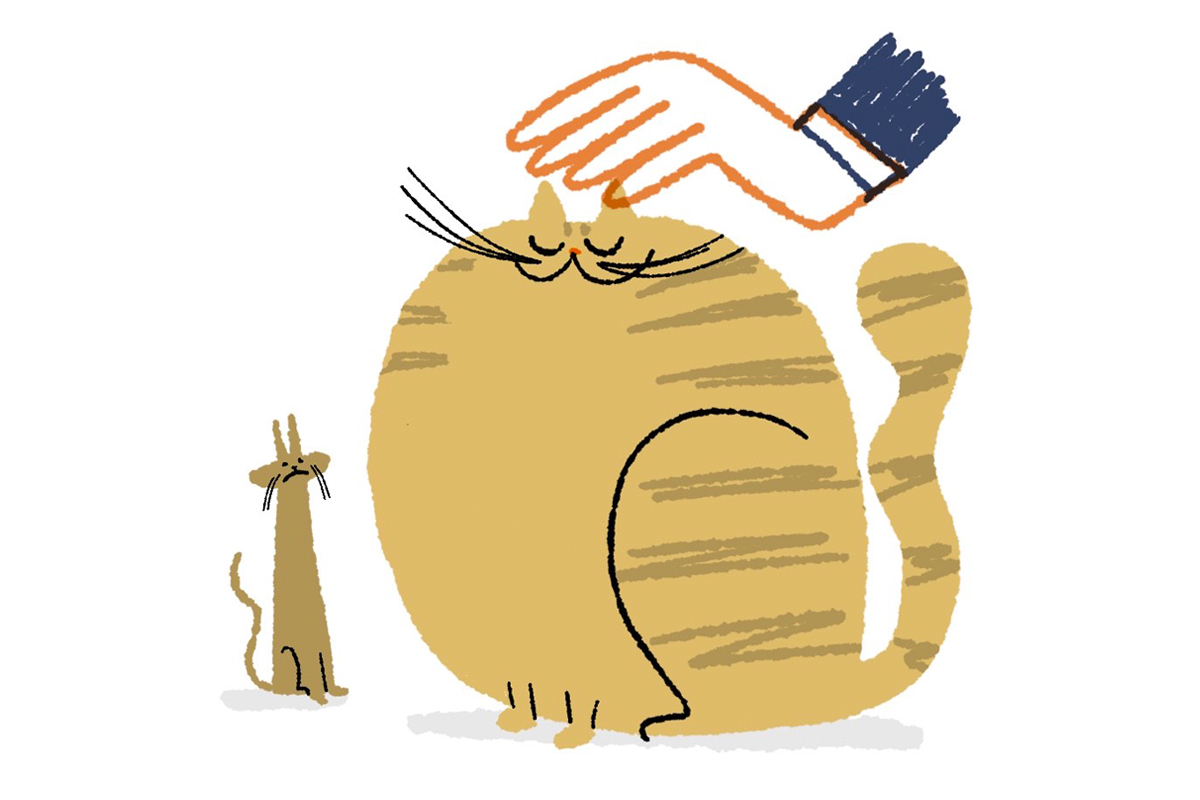

POLITICS / NOVEMBER 2024
Poilievre Has No Economic Platform
But because of Trudeau’s blunders, he doesn’t need one
BY RICARDO TRANJAN
ILLUSTRATION BY JAMIE BENNETT
Published 7:43, SEP. 18, 2024
With less than a year to go before the writ is expected to drop, Pierre Poilievre’s economic proposals are vague and shallow—and appear likely to stay that way. Though populists from both sides of the aisle tend to galvanize support by arguing the economy isn’t working for everyday people, the left tends to propose precise policy solutions. They promise, for instance, to tax the rich and invest in universal public services. They promise to regulate markets to stop profiteering in basic-need sectors such as nutrition, health care, and housing. They also promise to nationalize natural resources so everyone benefits from them. Say what you will of left-wing populists, but their intentions are clear.
Right-wing populists like Poilievre are less forthcoming.
While pledging a new day to people falling behind, their economic policies favour the wealthy, in keeping with the ruse of trickle-down economics. The argument is that governments should focus on growing the economic pie so everyone will one day get a larger piece. In the meantime, the rich will get an outsized slice of the existing pie—that’s the part right-wing populists conceal.
Take, for example, Poilievre’s tax proposals. “Axe the tax” is his most popular plank. He says ending the carbon tax, which raises the price of fossil fuels for consumers and sets standards for industry as an incentive to curb emissions, will put money back in people’s pockets. But most households already receive more carbon tax rebates than they pay in carbon taxes: between $260 and $723 more annually, depending on the province. Axing this tax will benefit only those people who consume more energy than most and who therefore stand to lose more money to the tax than they receive in rebates. This would include people with large houses, heated swimming pools, and large cars.
The same is true of the increase in the capital gains inclusion rate, introduced in June, which Poilievre has vehemently opposed. Justin Trudeau has defended the hike, calling it “a fundamental choice around a fairer society.” Prior to the increase, Canada collected taxes on 50 percent of capital gains (like selling properties and trading stocks). With the Trudeau government’s recent change, companies and trusts are subject to taxes on two-thirds of capital gains. For individuals, the new inclusion rate applies only to the portion of capital gains that exceeds $250,000 within a year. According to this year’s federal budget, only 0.13 percent of Canadians will pay more taxes as a result; their average income is $1.4 million a year. The other 99.87 percent benefit from the services the tax funds. Poilievre has said, if elected, he would form a “tax reform task force” of “entrepreneurs, inventors, farmers, and workers” that could help his government lower taxes. Details on the force remain slim.
Poilievre has also committed to creating a “bring it home tax cut” that will “bring home production and paycheques with lower taxes on work, hiring, and making stuff.” What does that mean exactly, and will we know more before the election? The Hill Times asked his office those questions and was told simply that, if elected, Poilievre would “immediately” eliminate the carbon tax, without any further details on what his government’s approach to tax policy might be.
The thing with tax reform is that if someone pays less, someone else must pay more; otherwise, services must be cut. We’ll find out who will pay less, who will pay more, and whose services will be cut only if he wins the election. That’s a big gamble.
Then there is “Justinflation.”
Poilievre claims the federal government and the Bank of Canada are playing fast and loose with monetary policy, printing too much money and taking on too much debt, which is causing prices to go up. This simplistic explanation masks the real drivers of inflation: the supply-chain disruptions the COVID-19 pandemic created; Russia’s invasion of Ukraine, which drove up energy costs; large grocers hiking up food prices; and, more recently, the impact of high interest rates on mortgage costs and rents.
Labour unions have criticized the Bank of Canada for single-mindedly pursuing inflation targets through interest rate hikes, which can lead to high unemployment. The Trudeau government could have pressured the Bank to slow down rate hikes, balancing the need to tame inflation with the need to protect jobs. This approach would have also benefited mortgage holders and renters. Instead of siding with workers, echoing the clear analysis of unions, and supporting their concrete proposals, Poilievre incessantly repeated “Justinflation” and swore to increase oversight over the bank. Nobody knows what that would mean in practice.
Right-wing populists don’t win elections on the specifics. Evasiveness is a tactic, not a weakness. Donald Trump, Doug Ford, and Jair Bolsonaro in Brazil all had nebulous economic platforms. They promised to govern for everyday people, but under their watch, the rich have grown richer and the poor have been left behind.
The antidote to this political strategy is a genuinely alternative and clearly articulated economic program, one that describes how the state can unapologetically intervene on behalf of working families. Such an alternative is currently not on offer in Canada.
Without clear and concrete alternatives, people falling behind will be tempted to vote for the candidate who echoes their concerns most loudly. And for many, that someone is Pierre Poilievre.










